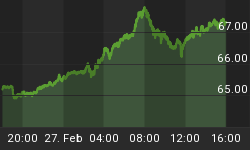Today's headline out of Ireland will add to fears that the decade-long economic boom is ending with a recession. The volume of retail sales fell 1.1% on the month and plunged 4.8% on the year in May, the fourth consecutive monthly fall and the sharpest annual drop since 1987.
Chart 1
Ireland (like fellow-EU member Spain) is being hit by a double whammy. Domestic housing market woes are coinciding with global problems in the form of the credit crunch, rising food and oil prices, and the US and UK slowdowns. The drop in export demand is particularly harmful to such an open economy. The US is Ireland's largest market, taking about 20% of annual exports, with the UK a close second at around 18%.
After a decade-long boom, Ireland's economy began to slow over the course of last year as the housing market bubble began to deflate. House prices dropped for the 15th month in a row in May, with the annual decline at 9.5%. The risk of a US-style housing market slump is mitigated in part by the fact that demand for housing remains relatively robust thanks to the nation's demographics (a young population and generally-high rates of immigration). Growth in residential mortgage lending has slowed (to an annual rate of 11.1% in May, the weakest in 16 years) rather than reversed.
Nevertheless, the economy clearly is on the brink of a technical recession. Real GDP growth slipped 0.2% on the quarter in Q1, and was down 1.5% on the year. The government's official forecast sees real GDP growth at just 0.5% this year. Last week, Central Bank Governor Hurley warned that "growth prospects for the next 18 months or so are now significantly less favorable" and forecast 2008 growth of "significantly less than 1%".
Chart 2
Meanwhile, inflation is rising. The annual rate of EU-harmonized CPI hit 3.9% in June, the highest in nearly five years.
Chart 3
Yet for all the doom and gloom, the economy is in much better shape overall than at the time Ireland's last recession in the late 1980s. The government has some fiscal stimulus wiggle-room thanks to a series of annual budget surpluses and a ratio of public sector debt to GDP that is now one of the lowest in the EU. All told, it seems the decade-long party will culminate in a painful hangover, but one that should wear off by 2009.















